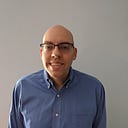Freedom and Faith
I’m not a believer in fate or karma. The idea that everything that happens to a person is bound to happen that way, or is the result of something that person did at some earlier time, strikes me as too deterministic. Serendipity, on the other hand, is something I can appreciate. Because I’ve come to understand that many seemingly non-random events are really coincidences, when a particularly fortuitous coincidence occurs, I make an effort to take advantage of it.
Yesterday evening, I saw Lech Walesa, Nobel Peace Prize winning labor activist and former President of Poland, speak in Washington, DC. I only learned he would be there earlier that same day, and the announcement stated he would be speaking in Polish, a language I don’t speak. Nevertheless, I was determined to be there. I was determined to witness, at least once in my life, public remarks by this man I’ve admired for so long. The announcement said what the basic gist of his remarks would be: criticism of the current Polish government for its assaults on the country’s constitution, its presiding over Poland’s backsliding away from liberal democracy.
What made this a serendipitous event? It was not merely the fact that, over the last year or so, my Polish heritage has, for a mix of reasons, become more important to me. It was the fact that, also on the day of Walesa’s remarks, I read about a newly passed law in Poland, one making it possible for the government to punish judges for questioning or criticizing government policy. This is just the latest in a series of steps the right-wing Law and Justice party has taken during its five years in power that threaten the independence of the Polish judiciary: firing judges, forcing them to resign, lowering their retirement age to push those who disagree with government policy off the courts. A country whose government does this cannot remain free for very long.
For years I’ve read news of these and other events, in which Poland, whose struggle against communist control in the 1980s was one of the most important factors in the West’s victory in the Cold War, was turning its back on its proud recent history. The chance to be in the room when Walesa, the leader of the Solidarity movement that led the charge against communism, the first president of post-communist Poland, a symbol of the triumph of freedom over tyranny, spoke up for freedom once again was too good to pass up. Even though I didn’t understand the precise words he was speaking, just being there was encouraging enough, enough of a boost to my confidence in humans’ ability to protect their rights and liberties.
Half of my ancestry is Polish, and I grew up Catholic. For a very long time, I thought the first characteristic was inherently linked to the second. I thought being Polish entailed being Catholic. It wasn’t an entirely unreasonable thing to think: Poland is one of the most heavily Catholic countries in the world, and the vast majority of Polish Americans are at least nominally Catholic. I’m sure the fact that John Paul II, born Karol Wojtyla, was pope for my entire childhood, and was renowned around the globe as a defender of human freedom and dignity, had a lot to do with it. It was how I felt during the first fifteen years of my life, when I genuinely believed in the faith, and it was how I felt in my first two years of college, when I briefly returned to the church after a period of agnosticism in my late teens. I’m sure the Polish pope’s death in 2005 was a major factor in my decision to stop going to church later that same year. It was far from the only factor, but at the very least it made it easier for me to reach the conclusion I had been entertaining in my brain for a long time: the old faith is not for me.
Seeing Walesa speak was probably the closest I’ve come in the last fifteen years to feeling that faith renewed. While Catholic faith is not something I have in common with Walesa (a close ally of John Paul II), a belief in liberal democracy, and a worry for its future, is something we share. Those of us who live in DC, whose political involvement and up-close view of power in action have given us so many reasons to think the worst about our fellow human beings, should remind ourselves now and again that liberty and democracy really are superior to the alternatives, and really are worth defending. I’m wary of people, whether left-wing or right-wing or anything else, who treat politics as a substitute for religion, who insist that their opinions are dogmatic certainties and that disagreement is evil. But when someone’s faith leads them to fight for freedom, justice and dignity, it’s a reminder that faith, even in the cold and cynical 21st century, can still be a force for good in this world.
